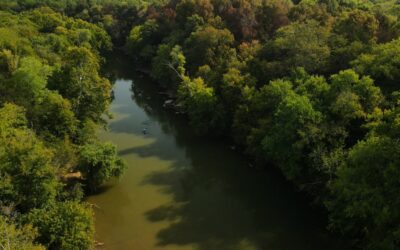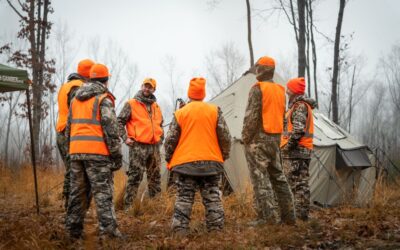Every year, Tennessee Wildlife Federation tracks the legislation at state and federal levels to advocate for bills that will advance conservation and against those that will negatively impact wildlife, lands, outdoor recreation, and more.
2023 Tennessee General Assembly Bill Review
The first year of the 113th Tennessee General Assembly’s two-year session adjourned on Friday, April 21, 2023. This session, Tennessee Wildlife Federation tracked 50+ state bills related to wildlife, conservation, sporting activities, public access, water, and more. Highlights of state legislation tracked by the Federation include the following:
Duck River State Scenic River Designation (HB0447/SB0464)
Our Position: Supported
Status: Passed; Signed into law by Governor
Summary: Designates a segment of the Duck River in Maury County as a Class II scenic river with the intention of protecting river quality, vistas, shorelines, and adjacent lands. The Duck River has been recognized as the most ecologically biodiverse river in North America.
Paddlecraft Bill (HB0407/SB0639)
Our Position: Neutral after amendment
Status: Passed; Signed into law by Governor
Summary: As enacted, changes the frequency with which operators of commercial non motorized vessel rental operations must report data required by TWRA from three times a year to once a year; clarifies the scope of TN Fish and Wildlife Commission’s regulatory authority over such operators; makes other changes concerning such operations, including the use of vessel launches or ramps on the public waters of Tennessee; and establishes that certain records provided to the TWRA by outfitters who lease or rent non motorized vessels for noncommercial use is confidential and not open for public inspection.
CWD Carcass Importation Bill (HB0265/SB1372)
Our Position: Opposed
Status: Defeated
Summary: This bill would have allowed the importation of Chronic Wasting Disease-positive carcasses into Tennessee, a potential means of spreading CWD throughout the state. CWD has been found in 16 counties in Tennessee, with a high risk of spreading to five more counties. Tennessee Wildlife Federation CEO Mike Butler testified against this bill in a subcommittee hearing in early March, referencing research that shows the main ways CWD spreads is by transporting CWD-positive deer or carcasses.
Baiting Bill (HB0631/SB0621)
Our Position: Opposed
Status: Defeated
Summary: Would have allowed hunters to bait wildlife. As introduced, specifies that a person does not commit a Class C misdemeanor offense for hunting over bait so long as bait was not present while the person was hunting and the land is not posted by wildlife officers as a baited dove field.
Elk Zone Map (HB1524/SB1465)
Our Position: Opposed the amendment
Status: Defeated
Summary: Filed as a caption bill to require the Tennessee Fish and Wildlife Commission to publish a map of its “no elk zone” on the Tennessee Wildlife Resource Agency’s website. The bill was amended in an attempt to try to undo positive changes that were previously put in place around public duck blind draws.
Trotline Bill (HB1260/SB1308)
Our Position: Opposed
Status: Defeated
Summary: As introduced, establishes requirements and limitations for the use of a trotline to kill, catch, or take fish or other aquatic life.
Use of Deadly Force Against Bears that Enter Onto Property (HB1453/SB1309)
Our Position: Neutral after amendment
Status: Passed
Summary: Was amended to authorize a person who resides on a property that adjoins the Great Smoky Mountains National Park to take, kill, attempt to kill, or harm a bear that enters the person’s property if the bear acted in a manner that caused the person to have a reasonable belief that the bear’s action placed them in imminent danger of death or serious bodily injury or caused the person to believe the danger creating the threat of imminent death or serious bodily injury is real, or is honestly believed to be real at the time. Requires notification of TWRA within 24 hours after killing or seriously injuring a bear pursuant to this act, if the person is reasonably able to do so. Prohibits a bear from being removed from the site, repositioned, retained, sold, or transferred without authorization from TWRA.
Featured photo by Brandon Johnson




